#paul celan
Text

Paul Celan, from a poem titled "Afternoon with Circus and Citadel," featured in Selected Poems & Prose
2K notes
·
View notes
Text

Paul Celan, Selections
[Text ID: Memory, / set up your flag at half-mast. / At half-mast / today and forever.]
#paul celan#selections#words#poetry#typography#german literature#on memory#grief is a circular staircase
732 notes
·
View notes
Text
we gaze at each other, we speak of dark things,
we love each other like poppy and memory, we sleep like wine in the seashells, like the sea in the moon’s blood-beam.
Paul Celan
#paul celan#poetry#literature#words#quotes#academia#dark academia#quote#lit#books#books and libraries#reading#quote of the day#bookworm#book quotes#prose#p#booklr#bibliophile#excerpt#light academia#q#fav
289 notes
·
View notes
Quote
Only one thing remained reachable, close and secure amid all losses: language. Yes, language. In spite of everything, it remained secure against loss. But it had to go through its own lack of answers, through terrifying silence, through the thousand darknesses of murderous speech. It went through. It gave me no words for what was happening, but went through it.
A poem, being an instance of language, hence, essentially dialogue, may be a letter in a bottle thrown out to sea with the — surely not always strong — hope that it may somehow wash up somewhere, perhaps on a shoreline of the heart. In this way, too, poems are en route; they are headed toward.
Toward what? Toward something open, inhabitable, an approachable you, perhaps, an approachable reality.
Paul Celan, from a speech given on the occasion of being awarded the Literature Prize of the Free Hanseatic City of Bremen, sourced here
425 notes
·
View notes
Text
A poem, being an instance of language, hence essentially dialogue, may be a letter in a bottle thrown out to sea with the—surely not always strong—hope that it may somehow wash up somewhere, perhaps on a shoreline of the heart.
—Paul Celan, from “Speech on the Occasion of Receiving the Literature Prize of the Free Hanseatic City of Bremen” (1958), trans. Rosmarie Waldrop
389 notes
·
View notes
Note
hello <3 could you please do a webweaving on losing someone you love? thank you!

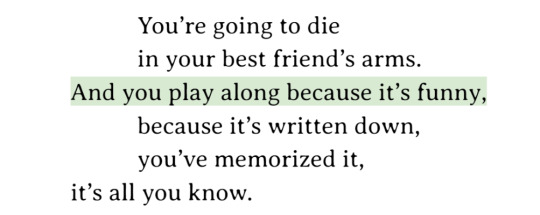

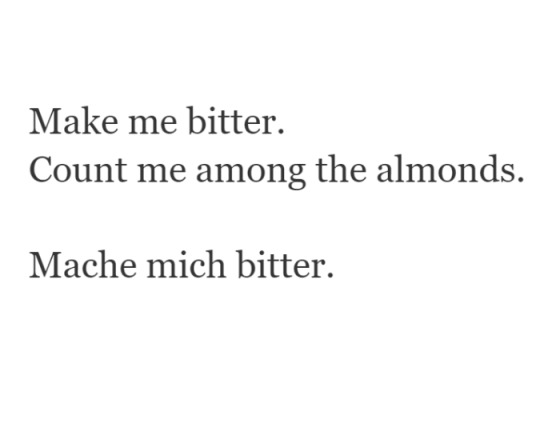
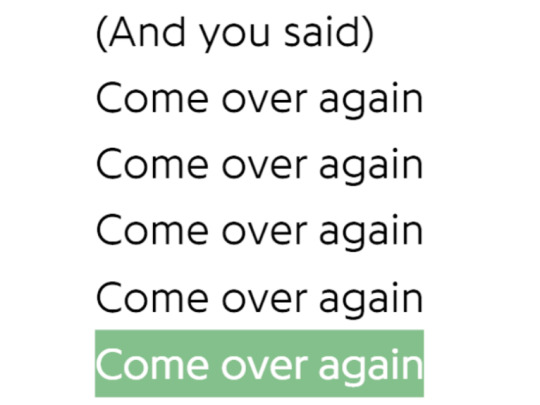

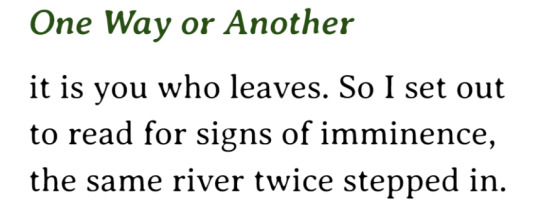


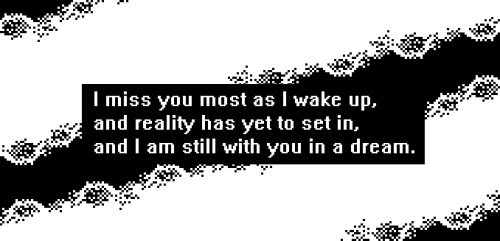



Either way, you're not coming back.
For whatever reason, I really struggled with this one. I wasn't sure if you meant loss as in dying or loss as in leaving, so I tried to make it applicable to both.
tender is not a bad word, K.C Cramm | Planet of Love, Richard Siken | A Self-Portrait in Letters, Anne Sexton | Count the Almonds, Paul Celan | Come Over (Again), Crawlers | A Valentine That Can’t Be Sent, Rosmarie Waldrop | Poetic Regulations, Mahmoud Darwish | Intimacy, Hanif Kureishi | @/small-planets | The Torn-Up Road, Richard Siken | Instructions for the End, Jen Benka | Norwegian Woods, Haruki Murakami
[transcriptions and image ID in alt text]
#webweaving#parallels#web weave#web weaving poetry#prose#compilation#webweaving loss#literature#on loss#༺✿ web weaves by basil ✿༻#requests#k.c cramm#richard siken#anne sexton#paul celan#rosmarie waldrop#mahmoud darwish#hanif kureishi#jen benka#haruki murakami
239 notes
·
View notes
Text

Paul Celan to Ingeborg Bachmann, from Correspondence: Ingeborg Bachmann and Paul Celan; 24 June 1949
Text ID: I am full of impatience and love.
#paul celan#ingeborg bachmann#correspondence: ingeborg bachmann and paul celan#correspondence#letter#quote#german literature#lit#miscellanea#same.
1K notes
·
View notes
Text
Germany's Next Top-Gedicht: Erstes Halbfinale
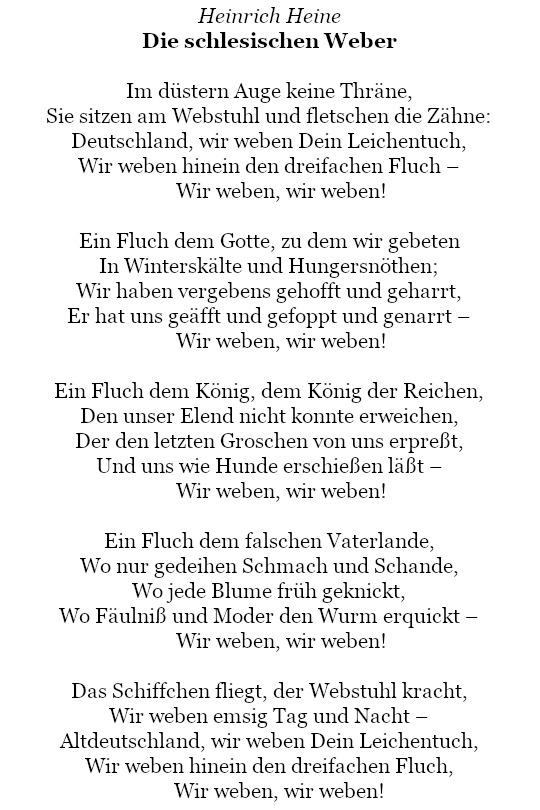
link
VS
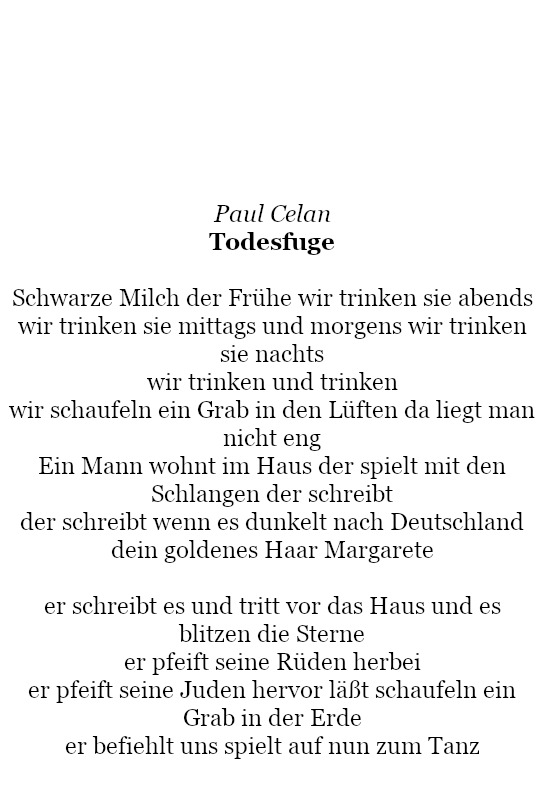

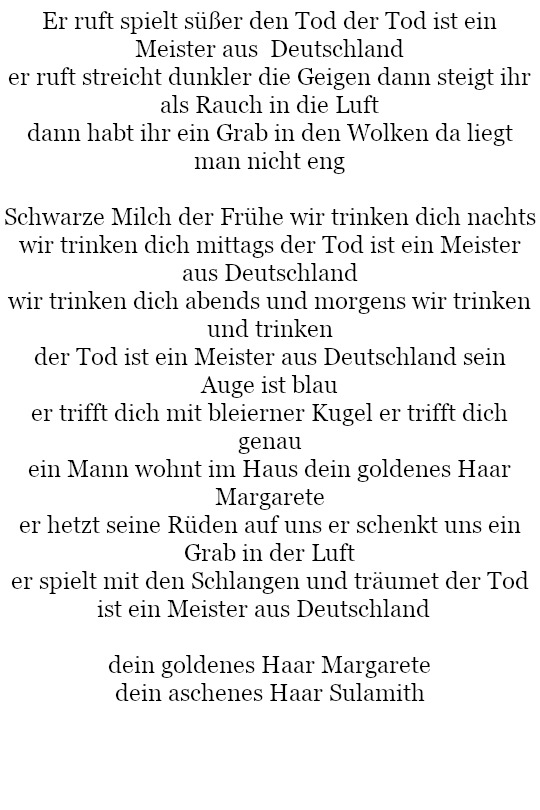
link
196 notes
·
View notes
Photo



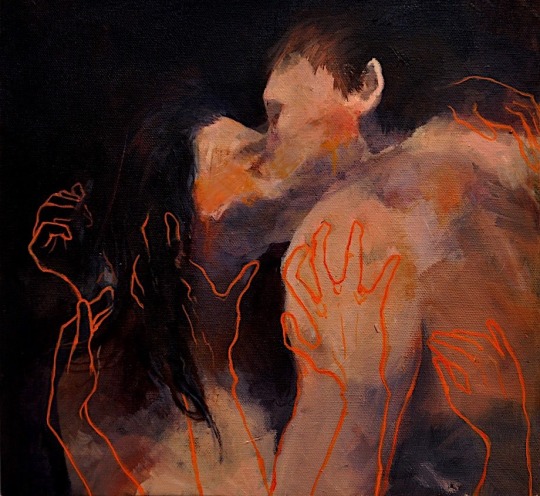



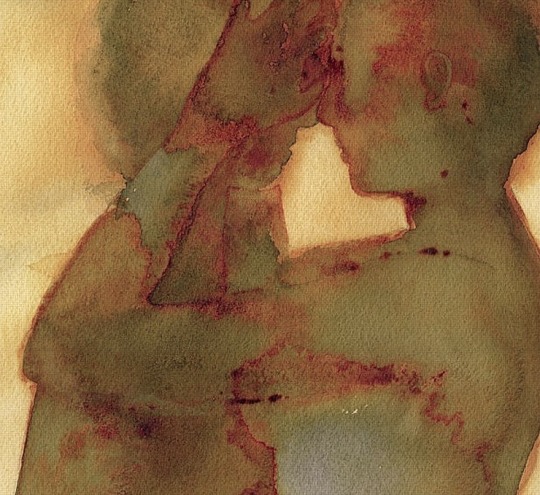

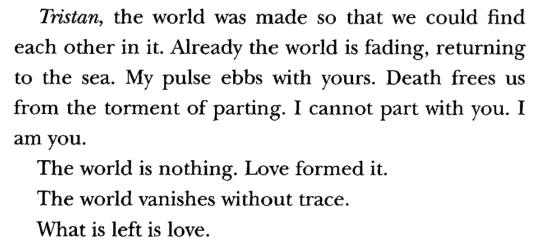
THE WORLD IS GONE, I MUST CARRY YOU
Philip Pullman, The Amber Spyglass
Richard Siken, ‘You are Jeff’
bell hooks, All About Love: New Visions
Angelica Alzona, Creophagy
Mary Oliver, ‘West Wind’
Kurt Vonnegut, Mother Night
Jeffrey McDaniel, ‘Archipelago of Kisses’
Graham Dean, Couple
Madeline Miller, The Song of Achilles
Jeanette Winterson, Lighthousekeeping
Paul Celan, ‘Vast, glowing vault’
#philip pullman#bell hooks#angelica alzona#kurt vonnegut#graham dean#jeffrey mcdaniel#lighthousekeeping#his dark materials#madeline miller#the song of achilles#paul celan#ana speaks#mine#art#jeanette winterson#my comparatives#mary oliver#richard siken#quotes#popular
2K notes
·
View notes
Text

Paul Celan, from a poem titled "Below a Painting," featured in Selected Poems & Prose
#lit#paul celan#poetry#writings#words#poetry in translation#selected poems & prose of paul celan#quote#p
921 notes
·
View notes
Text
Real poems, Celan wrote, are “making toward something ... perhaps toward an addressable Thou.” I would argue that, for any poet writing toward such a subject, regular words and syntax soon become inadequate. Celan is an extreme case though, because he also had to contend with the inadequacy of the German language to express the experience of the Jewish poet, post-Holocaust. [...]
Celan’s mother’s language was German. This German-speaking mother, who makes fitful enigmatic appearances in his poems, was shot by Germans. [...]
Celan chose to protest from inside German, in “death-rattling,” “quarreling” words. Though he spoke numerous other languages (Romanian, Russian, French), and though he had written previously in Romanian, he nevertheless decided to remain in German, which he broke and reclaimed. German, for Celan, was the language that had to “pass through its own answerlessness, pass through frightful muting, pass through the thousand darknesses of death-bringing speech.”
Why break a language? To wake it up. “We sleep in language,” writes Robert Kelly, “if language does not come to wake us with its strangeness.”
— Ilya Kaminsky, “Of Strangeness That Wakes Us”
I am reminded of the (Marie Howe sourced) Joseph Brodsky quote: “You think evil is going to come into your houses wearing big black boots. It doesn’t come like that. Look at the language. It begins in the language.”
235 notes
·
View notes
Text

Helena Almeida, Dentro de Mim (2000)
Lo último que nos queda a los dos / algo de lenguaje / algo de destino
Paul Celan
47 notes
·
View notes
Text
Non scriverti tra i mondi, tieni testa alla varietà dei significati, fidati della traccia di lacrime e impara a vivere.
- Paul Celan
93 notes
·
View notes
Text
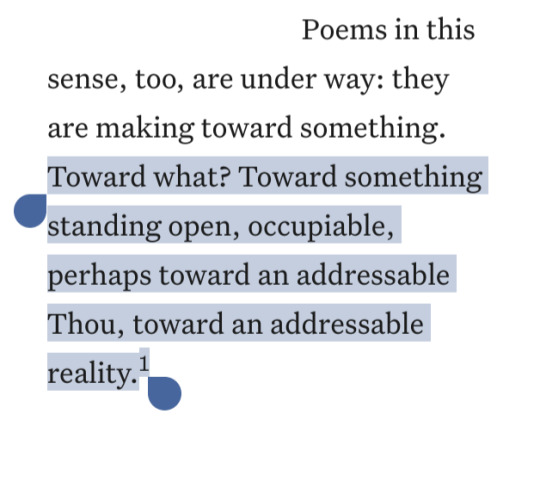
Paul Celan, quoted in "Addressable Thou", by Chase Berggrun, pub. The Brooklyn Rail [ID'd]
144 notes
·
View notes
Photo
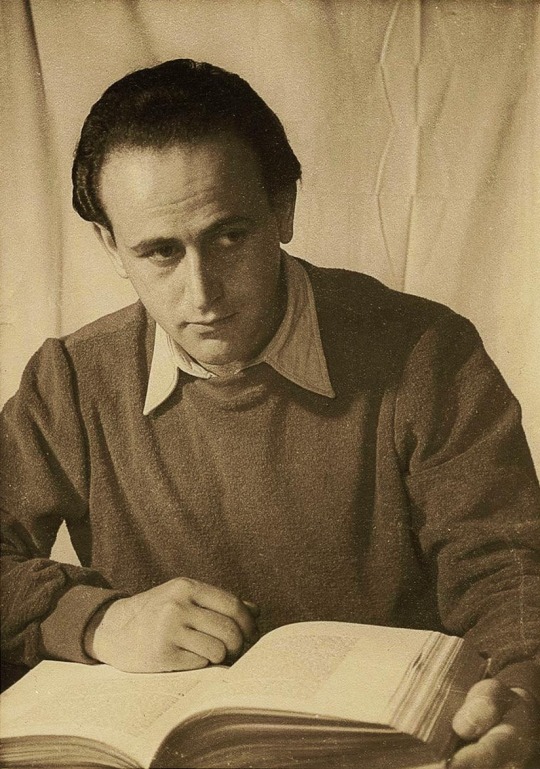
Romanian-Jewish, German-language poet Paul Celan, photographed in 1947
Born Cernăuți, Romania (now Chernivtsi, Ukraine), 1920 - died Paris, France, 1970
80 notes
·
View notes
